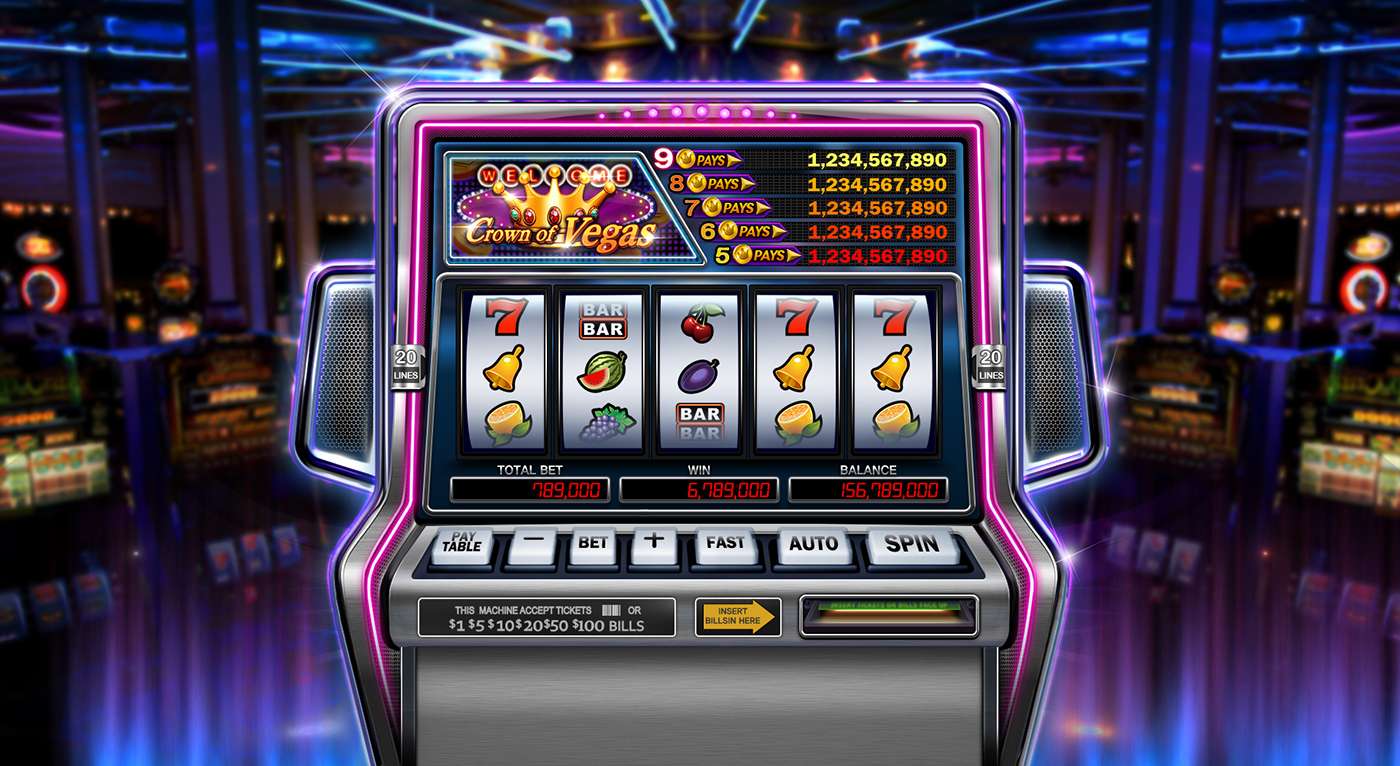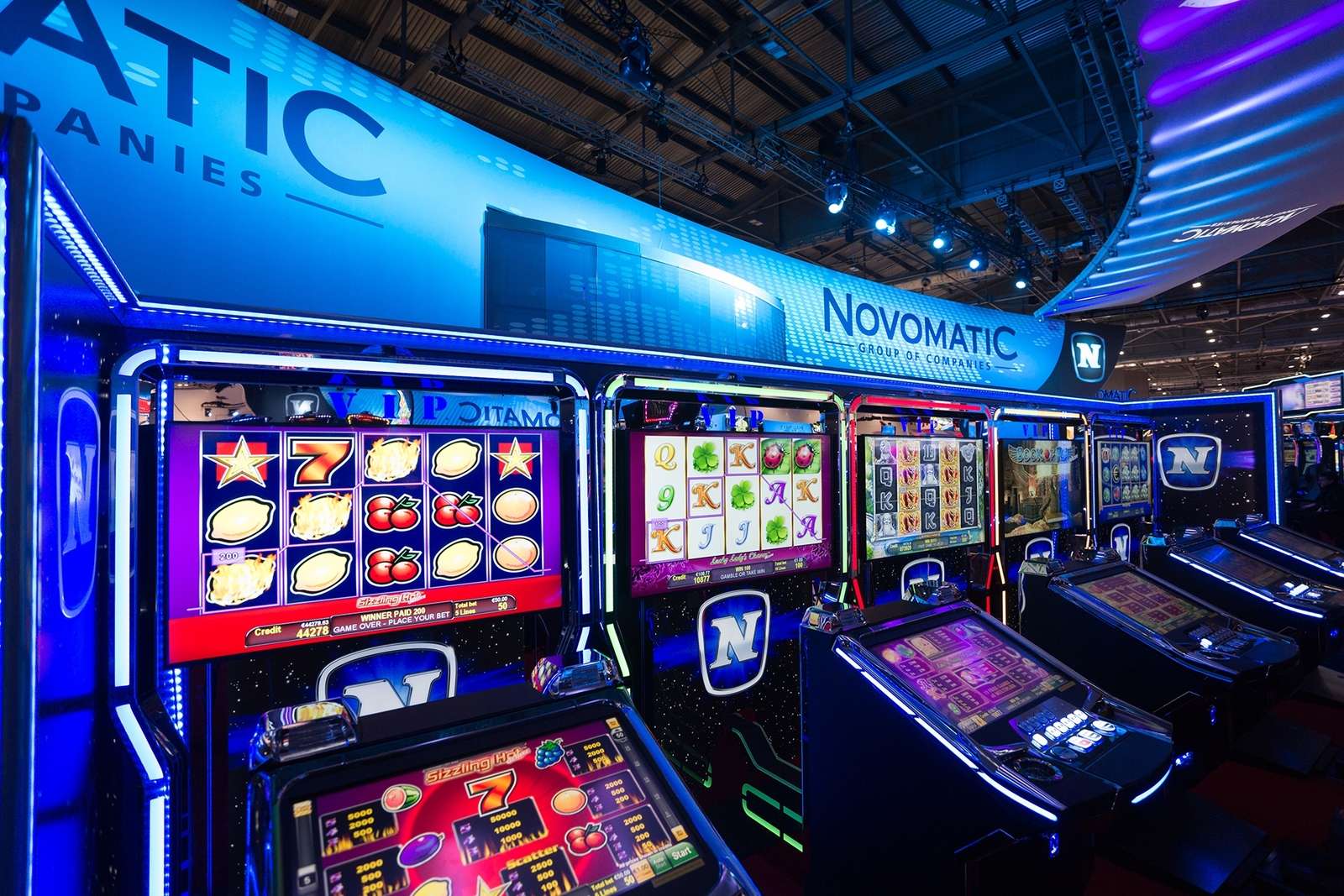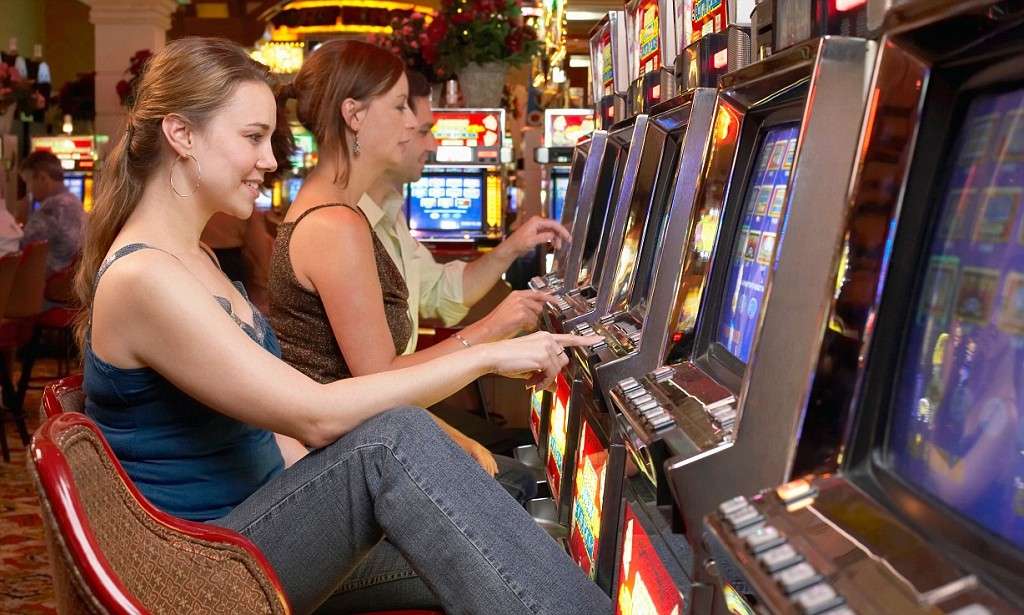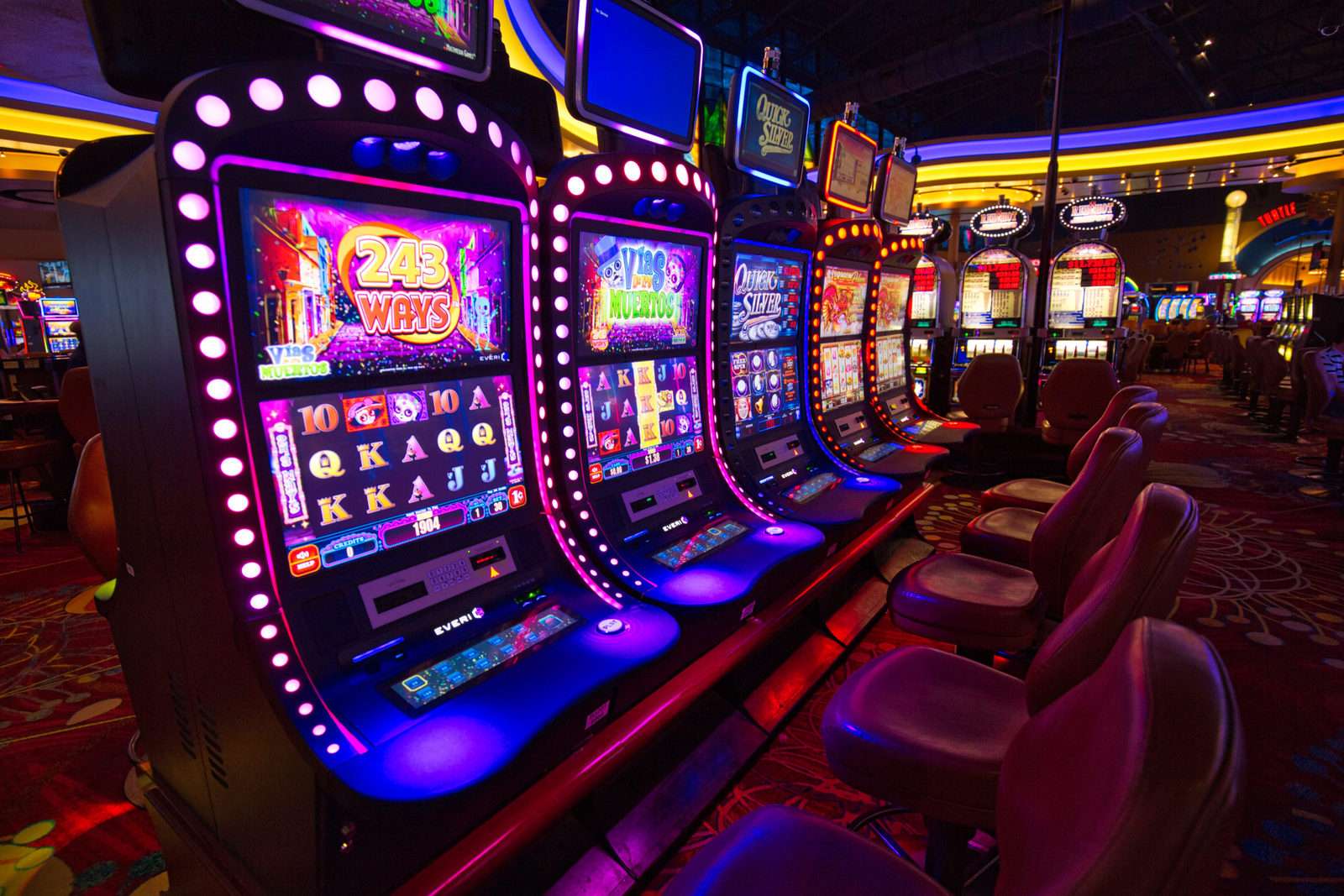When To Stop Playing A Slot Machine

Introduction
When To Stop Playing A Slot Machine: Stepping into the mesmerizing world of slot machines can be an exhilarating experience, where anticipation and excitement mingle with the possibility of striking a fortune. However, knowing when to hit the brakes and walk away from the spinning reels is a crucial skill for every savvy player.
The key factors that should influence your decision to stop playing a slot machine. From setting clear limits on your bankroll and time spent to recognizing patterns of compulsive behavior, knowing when to call it quits ensures that the allure of the slots remains an entertaining pastime rather than a potentially harmful obsession.
In this discussion, we explore the various factors that come into play when deciding when to stop playing a slot machine. From setting a budget and adhering to it, to understanding the concept of the “gambler’s fallacy,” and recognizing the signs of compulsive behavior, players need to be informed and vigilant.
We delve into the psychological aspect of gambling, shedding light on how emotions and cognitive biases can sway decisions and lead to reckless play. Understanding the fine line between entertainment and obsession is paramount to maintaining a healthy relationship with slot machines and gambling in general.
Is it good to stop slot machines?
The random numbers that determine your outcome for that spin have already been set before you stop the reels. Game designers call it “illusion of skill.” You feel like you have control of the game. Your timing in stopping the reels doesn’t really make any difference.
Bankroll Management: Setting limits on how much money one is willing to spend on slot machines helps prevent excessive losses and financial strain. Responsible gamblers establish a budget and stick to it, knowing when to walk away once their limit is reached.
Avoiding Addiction: Slot machines can be addictive due to their fast-paced, repetitive nature and potential for rewarding experiences. Recognizing when play becomes compulsive and knowing when to stop can help prevent addiction and its adverse consequences.
Emotion Regulation: In the excitement of playing, it’s easy to get carried away by emotions, leading to impulsive decisions. Knowing when to stop allows players to make rational choices and avoid chasing losses.
Time Management: Setting time limits for slot machine play ensures that players maintain a balanced lifestyle and engage in other activities and responsibilities.
Enjoyment vs. Stress: When playing slot machines is no longer enjoyable and becomes stressful or distressing, it’s a clear sign that it’s time to stop. Gaming should be a form of entertainment, not a source of stress.
Should I leave a slot machine after winning?
The main reason to leave a machine after hitting a substantial jackpot has nothing to do with whether or not you think the machine will pay off again. After you have a nice win it is perfect time to take a break and lock up a win.
Bankroll Management: If you’ve achieved a significant win and want to protect your profits, leaving the slot machine can be a wise choice. It ensures that you walk away with winnings in hand rather than risking them by continuing to play.
Winning Streak vs. Losing Streak: Winning streaks can be exhilarating, but they are often followed by losing streaks. If you’ve experienced a notable win, it might be a good idea to stop playing and avoid potential losses.
Setting Goals: Before starting to play, set specific goals for your slot machine session. If you’ve reached your intended win target, leaving the machine allows you to fulfill your objectives and maintain discipline in your gambling habits.
Time Management: Slot machines can be captivating, and players may lose track of time while playing. Leaving after a win ensures you spend your time wisely and engage in other activities or games at the casino.
Responsible Gambling: Responsible gambling involves knowing when to stop and avoid chasing losses. If you’re ahead after a win, leaving the slot machine aligns with responsible gaming practices.
Enjoyment vs. Profit: Consider whether you are playing for enjoyment or solely for profit. If your primary goal is to have fun, leaving the machine after a win can help you relish the positive experience.
Risk Tolerance: Every player has a different risk tolerance level. Some might prefer to push their luck and continue playing after a win, while others may feel more comfortable securing their winnings promptly.

Are slot machines luck or skill?
Slots are almost entirely down to chance, meaning there is very little strategy involved, and every player has the same odds of winning. You simply spin the reels and hope to match symbols along the various paylines. For a more detailed breakdown of the rules, check out our page on how to play slots.
Slot machines are primarily games of luck rather than skill. Unlike games such as poker or blackjack, where players can employ strategies and decision-making to influence the outcome, slot machines operate based on random number generators (RNGs). These RNGs generate random sequences of numbers, determining the symbols that appear on the reels during each spin.
The outcome of a slot machine spin is entirely unpredictable and beyond the player’s control. Whether a player wins or loses on a slot machine is purely a matter of chance. No amount of skill or strategy can alter the RNG’s results or influence the symbols that appear on the reels.
That said, while slot machines rely heavily on luck, there are certain aspects of playing slots that players can manage:
Bankroll Management: Players can control the amount of money they wager and set limits on how much they are willing to spend on slot machines, which helps them manage their bankroll responsibly.
Game Selection: Players can choose slot machines with different themes, features, and payout structures, but these decisions do not impact the inherent randomness of the game.
Time Management: Players can control how long they play slot machines and decide when to stop based on their gambling objectives and time constraints.
How do I stop playing slot machines?
- Plan ahead to avoid boredom.
- Live your life one day at a time.
- Do something completely different.
- Rekindle an old hobby.
- Be especially vigilant leading up to special events.
- Find ways that help you cope better with stress.
- Remind yourself that to gamble is to lose.
Stopping playing slot machines can be challenging, especially if you find them enjoyable or have been caught up in the excitement of the game. However, recognizing when it’s time to step away is crucial for maintaining responsible gambling habits and managing your bankroll effectively. Here are some steps to help you stop playing slot machines:
Set a Budget: Before you start playing, establish a clear budget for your slot machine session. Decide on the maximum amount of money you are willing to spend, and stick to it. Once you reach your budget limit, stop playing immediately.
Set a Time Limit: Determine how much time you want to spend playing slot machines and adhere to that schedule. Use an alarm or timer to remind yourself when it’s time to stop, regardless of whether you are winning or losing.
Use Cash Only: Leave your credit cards and extra cash at home to avoid overspending. Bring only the amount of cash you’ve allocated for your slot machine play, reducing the temptation to exceed your budget.
Take Frequent Breaks: Periodically step away from the slot machines to give yourself a chance to reevaluate your gaming session. Use these breaks to relax, engage in other activities, and assess if you should continue playing.
Avoid Chasing Losses: If you’ve experienced losses and are tempted to continue playing to recoup them, resist the urge. Chasing losses can lead to further financial troubles and should be avoided.
Seek Support: If you find it challenging to stop playing slot machines, consider seeking support from friends, family, or professional resources. Talking about your gambling habits with others can provide encouragement and accountability.
Self-Exclusion: In some cases, self-exclusion programs are available at casinos. If you believe you need help to stop playing slot machines, inquire about self-exclusion options to restrict your access to casino facilities.

Can you predict slot machines?
How to tell when a slot machine will hit. You cannot tell when a modern slot machine will hit because the outcome of each spin is random. No matter how many times a machine has spun, and no matter what the outcomes of those spins were, the probability of the next result remains the same.
Slot machines operate using random number generators (RNGs), sophisticated software algorithms that generate random sequences of numbers. These RNGs ensure that the outcomes of each spin are entirely unpredictable and independent.
The random nature of slot machines means that every spin is an independent event with no connection to past or future spins. As a result, there is no pattern or sequence that players can identify to predict the next outcome. Each spin is like flipping a coin, and the chances of getting heads or tails remain the same with each toss.
While some players might believe they can detect patterns or predict future outcomes based on this is a misconception known as the “gambler’s fallacy.” The reality is that slot machines are designed to be random and fair, ensuring that each player has an equal chance of winning or losing on every spin.
Casinos also regularly test and audit their slot machines to ensure that they comply with strict regulations and maintain their randomness. The integrity of the RNGs is vital to the credibility and fairness of slot machines and the entire gambling industry.
Is there a secret to slot machines?
It’s all a matter of chance. There are no blackjack- or video poker-like strategies that can cut into the house’s mathematical edge. Odds on slot machines are unchanging. There’s nothing you can do legally that will change the outcome, though scam artists sometimes have succeeded until caught, arrested and imprisoned.
While slot machines might seem mysterious and alluring, there is no secret formula or guaranteed strategy that can consistently beat these games. Slot machines operate using random number generators (RNGs) that generate random sequences of numbers, ensuring that the outcomes of each spin are entirely unpredictable and independent.
The design of slot machines, both in physical and online casinos, is based on mathematical principles and probabilities. The house always has an edge, meaning that, over time, the casino will statistically win more than players. Any claims of “secrets” or “foolproof strategies” to beat slot machines are typically based on misconceptions or scams.
While players may develop some preferences for certain machines based on themes, features, or past experiences, these do not impact the inherent randomness of the game. Each spin is like flipping a coin, and the odds of winning or losing remain the same with every pull of the lever or push of a button.
As with all casino games, including slot machines, gambling should be approached with the understanding that it is entertainment, and the outcome is a matter of chance. Responsible gambling means setting limits, playing for fun, and never risking more money than you can afford to lose.

What is the success rate of slot machines?
Slot machine odds are some of the worst, ranging from a one-in-5,000 to one-in-about-34-million chance of winning the top prize when using the maximum coin play.
The success rate of slot machines refers to the percentage of money wagered that the casino expects to retain as profit over time. It is commonly known as the “house edge.” The success rate of slot machines varies depending on the specific game and its design, but it generally ranges from around 2% to 15% or more.
Slot machines are programmed to ensure that the casino has an advantage over players in the long run. This means that, on average, the casino will keep a certain percentage of all the money wagered on slot machines, while the rest is returned to players as winnings. The success rate is a mathematical advantage for the casino and ensures their profitability.
For example, if a slot machine has a house edge of 5%, it means that, over time, the casino will keep approximately 5% of all the money wagered on that machine, and the remaining 95% will be paid back to players as winnings.
It’s important to note that the success rate is calculated over the long term and is based on millions of spins. In the short term, players can experience both winning and losing sessions due to the random nature of slot machines and the inherent variance in gambling.
The success rate of slot machines is an essential factor for casinos to maintain their operations and offer various amenities and services to their patrons. For players, understanding the house edge can help manage expectations and make informed decisions about gambling activities.
How many times will a slot machine hit?
But as a long-term average, the slots jackpots in our hypothetical casino show up an average of once per 10,000 spins. In all, there are 100,000 spins. With average for these machines, we could expect about 10 jackpots. Depending on where you are in the casino, you might or might not see a slot player win big.
The number of times a slot machine will hit, also known as the hit frequency, is determined by the slot machine’s programming and the use of random number generators (RNGs). The hit frequency represents the percentage of spins that result in a winning combination. It is typically expressed as a percentage.
The hit frequency of a slot machine varies depending on the specific game and its design. Different slot machines have different hit frequencies, which can range from low to high. For example, a slot machine with a hit frequency of 20% means that, on average, 20 out of every 100 spins will result in a winning combination.
Hit frequency does not guarantee how much a player will win or when they will win. Even with a high hit frequency, the payouts on winning spins can vary significantly, and players can experience both winning and losing sessions due to the random nature of slot machines.
Hit frequency is just one aspect of a slot machine’s programming. The overall payout percentage, also known as the return to player (RTP), is a more critical factor in determining the long-term payout of a slot machine. The RTP represents the percentage of all wagered money that a slot machine will pay back to players over time.
Conclusion
To stop playing a slot machine is a critical skill for any responsible gambler. Setting clear limits on your bankroll and time spent, recognizing signs of compulsive behavior, and prioritizing enjoyment over chasing losses are essential aspects of managing your slot machine play responsibly.
Understanding that slot machines are games of luck and that there is no secret formula for guaranteed success helps maintain a balanced perspective on gambling. By adhering to these principles, players can enhance their gaming experience, protect their financial well-being, and avoid the pitfalls of compulsive gambling.
Responsible gambling ensures that playing slot machines remains an entertaining pastime rather than a harmful habit. It’s essential to approach slot machines with a level-headed mindset and practice self-control to savor the thrill while staying in control of your gambling experience.
Gambling should be viewed as a form of entertainment, not a means of making a profit. Knowing when to walk away from a slot machine ensures that the thrill of the game remains enjoyable and does not transform into a harmful habit.
